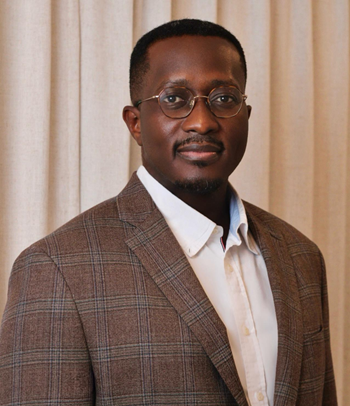In an era that demands purpose-driven leadership, Nii Ashitei Ashietey stands out as part of a rising generation of Ghanaian changemakers — rooted in community, refined by public service, and driven by a bold vision to empower youth through technology.
Born to parents from Teshie, Osu, and Big Ada, Nii Ashitei’s roots are firmly grounded in the communities that raised him. He is part of a growing wave of professionals proving that service isn’t confined to government halls — it lives in innovation, mentorship, and the bold belief that a new Ghana is not only possible, but already in motion.
Educational Background
He began his education at Achimota Primary School, continued at Akosombo International School, and went on to earn his Bachelor and Master’s in International Business from the University of Ghana. For him, education was never a status symbol — it was preparation. He always saw learning as a way to solve real problems, create opportunity, and challenge systems.
Serving Ghana First: Reforming From Within
That belief led him to the Social Security and National Insurance Trust (SSNIT), where for almost a decade, he served in various roles that emphasised data literacy, compliance, and social security reform. His impact stretched beyond the office walls. He trained employers, supported prosecutions for non-compliance, and improved systems that thousands of Ghanaians rely on for retirement and social protection.
Global Skills, Local Vision
Today, Nii Ashitei works as a Senior Data Analytics Engineer for one of the world’s largest healthcare companies — a Fortune 500 company.
In his role, he uses tools like Python, SQL, Tableau, GitHub, Airflow, and other advanced automation software to build powerful reporting systems, drive smarter decisions, and improve health outcomes across markets. His work not only enhances patient outcomes and boosts profitability, but is also positioning him as a leading player in the U.S. tech healthcare space — blending strong technical expertise with sharp business acumen.
But even as his work spans time zones and teams, his vision remains anchored in Ghana.
“I never left Ghana behind,” he says. “Everything I’m learning globally is for the benefit of home.”
That mindset is powering his next mission. Plans are far advanced for the launching of a free ICT and Data Analytics Lab in Osu, offering young Ghanaians access to coding, analytics, and digital business tools.
“The goal is to empower youth from Teshie, Osu, Big Ada, and beyond to participate fully in the global digital economy. The lab will offer training, mentorship, and career support — helping students not just learn, but get hired, launch businesses, and lead in their own right. It’s about turning potential into power,” he adds.
“It’s Not Just About Code — It’s About Confidence”
For Nii Ashitei, tech is a tool — but confidence is the real currency.
“It’s not just about lines of code,” he explains. “It’s about building belief. Helping young Ghanaians see that they can build solutions for their communities today, not just someday.”
He believes that Ghana’s transformation will come not just from government programs, but from ordinary youth with extraordinary skills and the courage to apply them.
Backing the 1 Million Coders Agenda
Nii Ashitei sees great promise in President Mahama’s recently launched 1 Million Coders Program, which aims to upskill Ghana’s youth in digital literacy and technology.
“If implemented boldly,” he says, “this initiative can break the cycle of unemployment and equip a generation of thinkers, builders, and problem-solvers.”
But he cautions that it must go beyond policy — it must include mentorship, access to infrastructure, and real private sector involvement. “Ghana’s youth don’t just need opportunities,” he says. “They need ecosystems.”
Call to Action
Nii Ashitei is urging corporate Ghana, development partners, and educators to support grassroots tech initiatives that bridge global skills with local needs.
“This is how we build a generation of value creators,” he says. “Not just job seekers. Not just dreamers — but doers,” he adds.










